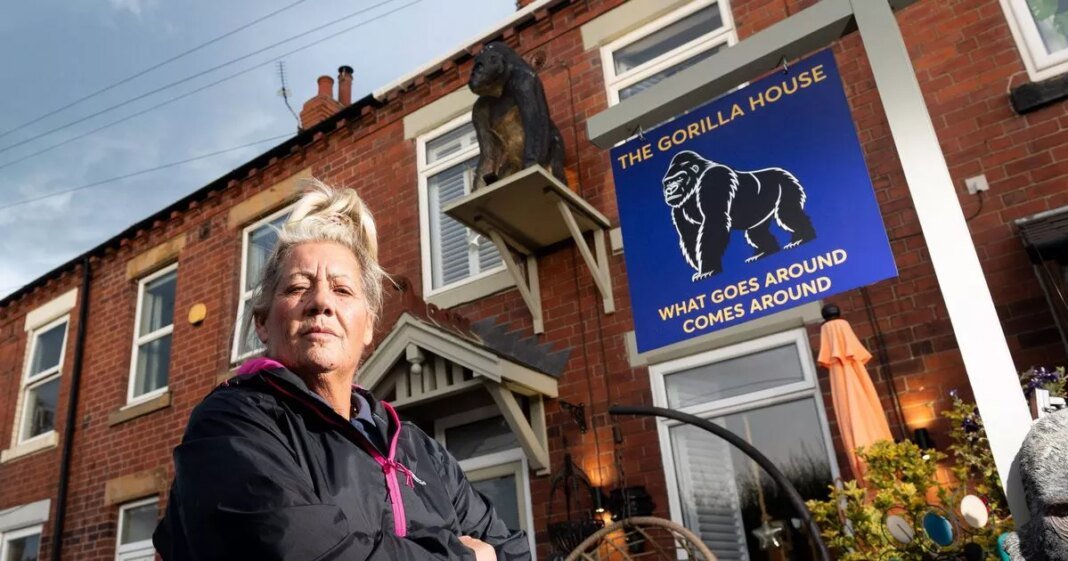A homeowner, Adele Teale, aged 58 and a gorilla enthusiast, finds herself in a disagreement with her local council over the presence of a four-foot-tall gorilla statue at the front of her residence. The resin gorilla, named Caesar by Adele, weighing 4kg, was placed outside her two-bedroom house a year ago and has become a local attraction.
Despite Caesar’s popularity among locals, Wakefield Council has instructed Adele to remove the statue, citing that it is not in harmony with the neighborhood’s aesthetics. Adele expresses confusion over the demand, emphasizing that Caesar is simply a garden ornament securely fixed in place.
Following a complaint about the gorilla statue being an “animal structure” on her property, Adele received a letter from the council advising her to remove Caesar under the Town and Country Planning Act 1990. Despite Adele’s attempts to reach out to the council, she claims she did not receive a response.
An enforcement notice was issued to Adele on July 10, 2025, mandating the removal of Caesar. Adele appealed this decision on August 11, contesting the council’s claims that the statue is disruptive to the area. The council argues that Caesar’s presence is not in line with planning regulations and requires permission.
Adele, who works for Leeds City Council, maintains that Caesar is merely a decorative item and disputes the council’s assertions that the statue has a negative impact on the environment. She recalls acquiring Caesar in 2005 and expresses her deep affection for gorillas, highlighting the joy Caesar brings her and her family.
Despite differing opinions, Wakefield Council’s Joe Jenkinson states that the gorilla statue does not meet planning guidelines and needs permission due to its prominent nature. He clarifies that the enforcement notice is pending the outcome of Adele’s appeal, indicating that it will only be enforced if her appeal is unsuccessful.

